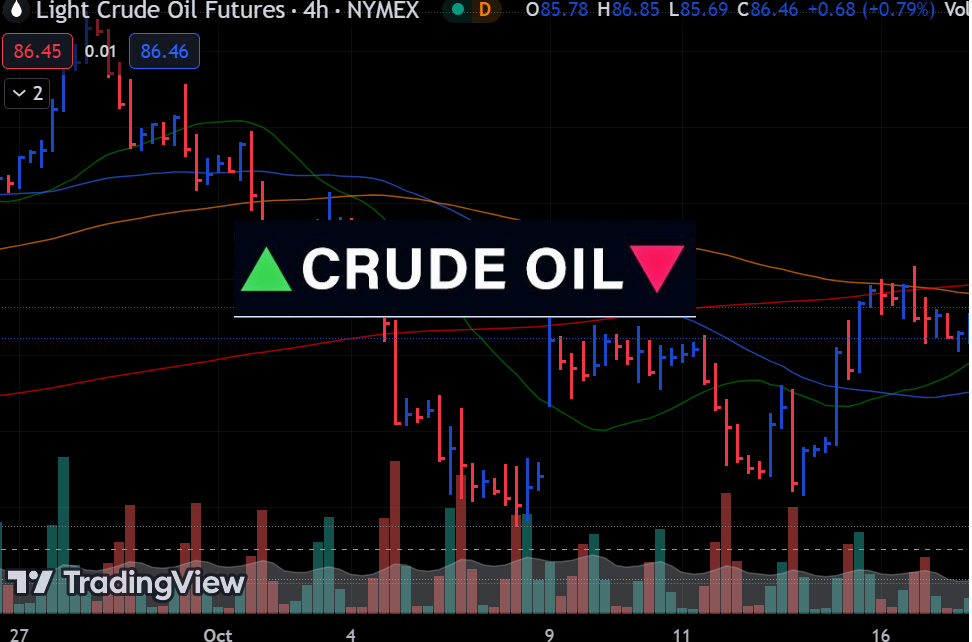- Geopolitical tensions increased as Israel intensified its bombings in southern Gaza.
- There was a 1.4 million barrel increase in US crude inventories last week.
- Bank lending across the Eurozone nearly stopped last month, suggesting a looming recession.
On Wednesday, oil prices increased by approximately 2% due to concerns about conflict in the Middle East. However, higher US crude inventories and gloomy economic prospects in Europe capped the gains. Price Futures analyst Phil Flynn mentioned that prices initially dropped during the session but rebounded due to increased geopolitical risks.
WTI Futures (Source: Nymex)
Israel intensified its bombings in south Gaza, and violence erupted in other parts of the Middle East. Prime Minister Benjamin Netanyahu, in a televised statement, announced that Israel is preparing for a ground invasion of Gaza.
Meanwhile, the Energy Information Administration (EIA) reported a 1.4 million barrel increase in US crude inventories in the latest week, reaching 421.1 million barrels. This figure exceeded the 240,000-barrel gain that analysts had anticipated.
Bob Yawger, the energy futures director at Mizuho, noted that the EIA data was more bearish as it shifted from a significant draw in the API data to a build in the EIA data. The American Petroleum Institute (API) had previously reported a larger-than-expected draw in crude stocks.
In addition to recent weak economic data in Europe, the European Central Bank’s data indicated that bank lending across the Eurozone nearly stopped last month. The 20-nation bloc might be on the brink of a recession.
Following sluggish economic data from Germany, the Eurozone, and Britain, oil prices dropped on Tuesday, which shadowed the energy demand outlook. Surprisingly, Eurozone business activity data declined this month, raising concerns about a potential recession in the region. Germany’s data indicated that the country is already in a recession.
Meanwhile, British businesses reported another monthly decrease in activity, underscoring recession risks ahead of the Bank of England‘s interest rate decision next week.
There are mixed prospects for crude demand in China, the world’s largest oil importer. China approved a bill to issue 1 trillion yuan ($137 billion) in sovereign bonds and allow local governments to issue new debt from their 2024 quota to stimulate the economy.
However, Beijing also imposed measures that could limit crude demand, including capping its oil refining capacity at 1 billion metric tons by 2025 to streamline its extensive oil processing sector and reduce carbon emissions.





